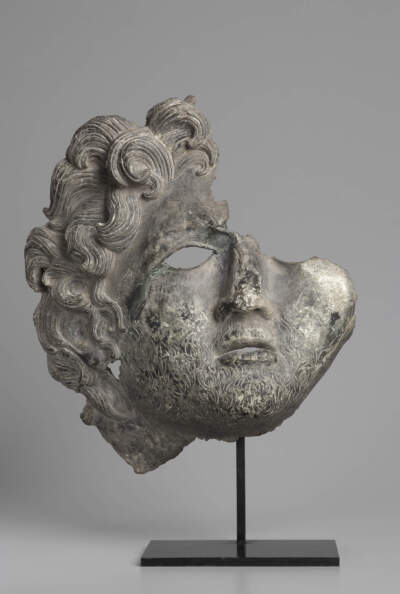Advertisement
The MFA gives up two likely smuggled bronzes
The Museum of Fine Arts transferred two works from its ancient Rome collection to the Manhattan district attorney’s office last month. The deaccession occurred after the DA’s office approached the museum as part of an investigation into an antiquities smuggling ring that trafficked works through Manhattan in the mid-20th century.
The investigation prompted the MFA to conduct its own internal review of the objects’ provenance. It concluded that the works likely came from a notoriously looted archaeological site in present-day Turkey, or, as it was known in earlier times, Bubon and Asia Minor.

The MFA contacted Turkey to facilitate the objects’ return, but Turkish officials instructed the museum to work in cooperation with the Manhattan DA’s office, which has located 11 other objects of similar provenance in several states. Of the 13 objects located so far, three have already been repatriated to Turkey.
The objects that had been in the MFA’s collection were two fragments of bronze sculptures that date back to the first and second centuries. Several earthquakes buried a slew of ancient objects and effectively preserved them until they resurfaced in the 1950s and ‘60s.
The museum received these two works 35 years apart. First, it received a sculpture of a leg in 1968, then the sculpture of a face in 2003. Both items were gifted to the museum and arrived by way of Manhattan-based antiquities dealer Jerome Eisenberg.
Victoria Reed is the MFA’s senior curator for provenance. “We're accountable to many audiences, and holding on to looted and stolen artifacts is not part of our responsibilities to the public. It is not part of our duties in maintaining the public trust,” she said.
“We certainly don't want to retain anything in the collection that is stolen, and in this case, there was pretty clear evidence of where these objects came from, when they left [and] no indication that they left with authorization or any kind of an export permit,” she continued. “With that evidence, we didn't feel that they had a place in the MFA's collection.”
A New York Supreme Court judge also issued a warrant of seizure on June 8 for a bust in the Worcester Art Museum’s collection and museum officials handed over the works shortly after.
Reed said that the MFA was not the rightful owner of these works and added that there would be significantly more documentation of authorization and export permits if objects were to cross national borders to join the museum’s collection today.
